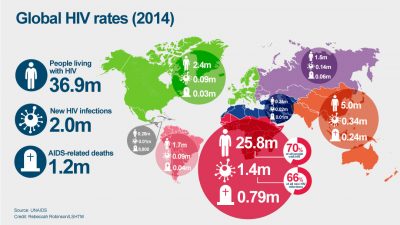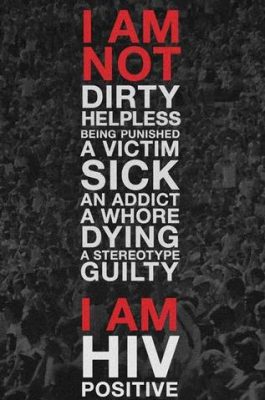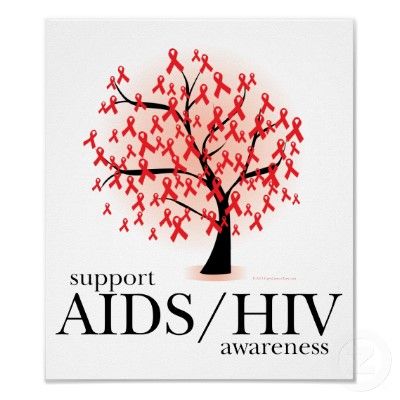The Social Processes of HIV/AIDS Training Program is supported by the National Institute of Mental Health. The program focuses on multi-level approaches (e.g., individual, dyadic, community, structural, etc.) to addressing the HIV/AIDS epidemic in the US and globally. Topics of focus include social/behavioral interventions to address health care engagement, combining biomedical, behavioral, and structural interventions, developing stigma focused interventions, rural and urban health, the impact of the HIV epidemic in developing countries, mother to child HIV transmission, needle exchange programs, public health policy around HIV prevention and treatment, HIV criminalization laws, among many other topics. Students have come to the program from varied backgrounds including, but not limited to Geography, Psychological Sciences, Allied Health, and Human Development and Family Studies. We encourage applicants from diverse backgrounds, and doctoral-level students from all departments at the University of Connecticut are eligible to apply. The fellowship is a prestigious Ruth L. Kirschstein Institutional National Research Service Award.

Steps to Apply
Application deadline is May 15, 2018. Please click on the application link and follow the instructions to submit your application online. Please have ready an updated curriculum vitae and a statement of research interests. In your statement of research interests please provide the review committee with information on the following: (a) What interests do you have in HIV/AIDS? and (b) How will enrollment into the training program facilitate your career goals?
Apply Here
Program Activities:
- HIV/AIDS Fellows Seminar each semester
- Seminar in Social Aspects of HIV/AIDS (first year)
- Grant and Manuscript writing/reviewing
- Research/Medical Ethics
- Participation in Community-Based Research Project
HIV/AIDS Fellows Seminar
The Fellows Seminar is required and meets weekly for 3 hours. The seminar is restricted to currently enrolled trainees. The focus of the seminar is a combination of lecture and discussion reviewing timely topics in HIV prevention and treatment (e.g., medication adherence interventions, Treatment as Prevention [TasP], Pre-Exposure Prophylaxis [PrEP], medical male circumcision, conditional cash transfer interventions, etc.), and ethics of research. In addition to developing applied research skills for use in community settings, the seminar covers a breadth of emerging topics in the area of HIV/AIDS. The seminar meets at a time proximal to the InCHIP Lecture Series. When speakers are relevant to the mission of the training program, fellows will attend the lecture. When possible, fellows will also have a designated meeting time with the speaker. Attendance and participation is required and is part of the evaluation of program progress.


Grant Writing
Fellows receive Grant Writing training as part of their participation in the program. In addition, the directors provide opportunities for fellows to participate in grant reviewing experiences. For example, the fellows offer a mock peer-review, directed by the training directors and other faculty, to anyone at the University of Connecticut submitting an HIV-related grant. The mock reviews provide investigators with a critical look at their grant and provide fellows with a review experience led by a seasoned grant reviewer on faculty. The directors also periodically ask other faculty investigators to share their grants and reviews as a teaching tool for fellows.
Manuscript Reviewing
Similar to the grant review, the directors seek out pre-reviews of HIV related manuscripts as service to researchers and a learning experience for fellows. The directors also share manuscripts and reviews as a teaching tool for fellows. The fellows also serve as an internal review committee to gain feedback on each other’s papers. All fellows are actively engaged in data analysis and in taking the lead on their own manuscripts for publication.
Research Ethics
Students are required to take “Responsible Conduct of Research Training” provided by the Graduate School.
Community Research Experience
Considered the ‘capstone’ experience in the program, all fellows participate in a community service learning project. Working as a vertical team and under the supervision of the directors, the fellows adopt a community based service agency for a year long experience in community-based HIV services. Although the focus of the experience may vary, in most years the experience will be centered on providing a comprehensive program evaluation for a community-based HIV services provider. Fellows will gain real-world applicable skills for addressing and understanding the HIV epidemic.
Role of Mentors
Fellows are required to have a major advisor who represents their interests in HIV/AIDS. Mentors are required to meet with their fellows as part of the student evaluation and feedback process. Mentors are the primary point of contact for the fellow’s research experience, including their Masters and Doctoral Theses.